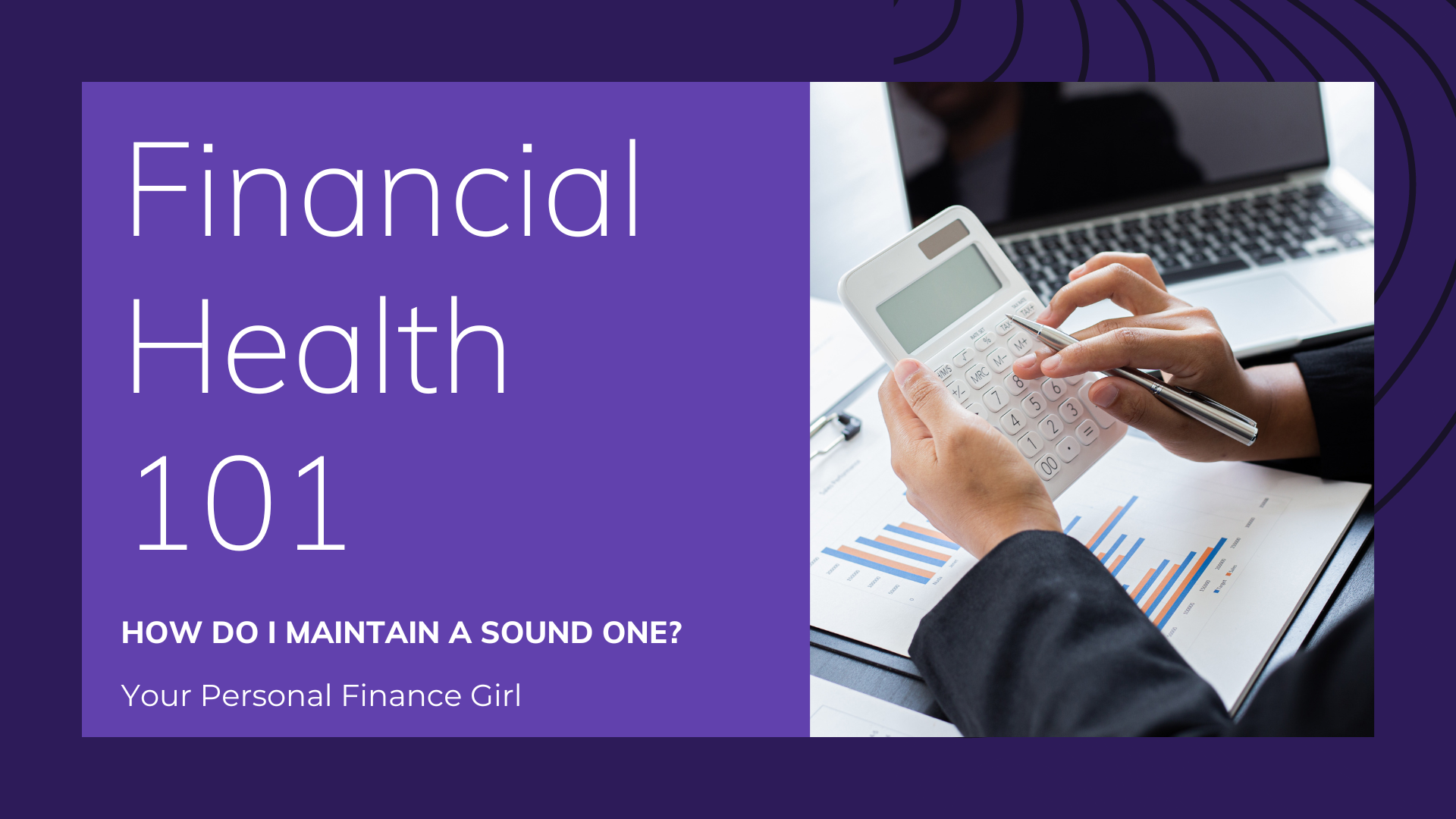Financial health, simply put, is a state of being in which a person, business, or financial institution measures their well-being by the condition of monetary assets and liabilities, such as debt and savings.
The concept of financial health focuses attention on how well you are faring in your financial life, on how well your finances thrive – with or without life’s billings such as income variability, high costs of living, financial shocks, or debt knocking at your door.
Your financial health is never static. It changes based on your liquidity and assets, the fluctuation of the price of goods and services as well as the purchasing power your income has as inflation sets in.
Why is financial health important?
“As your physical health encompasses not just an absence of diseases but an all-round well-being, so also should your finances.” – YPFG (2022).
Financial health is an important aspect of your well-being as your finances aid in making decisions and control and contribute to other areas or aspects of your life. It fosters financial security, which helps you remain comfortable and affects your overall well-being.
How then do I maintain/improve my financial health?
When trying to improve one’s financial health, the first step is to take a hard, realistic look at where you are currently at. Calculate your net worth and figure out where you stand. This includes taking everything you own, such as any savings accounts, vehicles, and other assets, and subtracting any and all debts.
Budgeting comes in immediately after this.
CREATE a budget with not just a plan for where you’ll be spending, but also by taking a hard and close look at where you already spend. Are there areas where you could cut back? Recurring subscriptions that you don’t really have a use for? It’s important to understand what your “needs” are versus what your “wants” are.
Use a budgeting template from YPFG to help set up a budget a lot easier. One of the major keys to maintaining your financial health is to NOT go outside your budget regardless of whether you start making more money or bringing in more income. Lifestyle Inflation, which includes spending more money as you make more money, is detrimental to your financial health. Read more on how to make a budget via this budgeting for beginners article.
Do I have an emergency fund? If not, am I planning to work on it?
Building an emergency fund can be that material boost your financial health needs. The fund is meant to be money that is saved and readily available for emergencies, such as car repairs, job loss, and other contingencies. The goal should be to have three to six months’ worth of living expenses in your emergency fund.
Do I have pending debts to clear?
If you do, there are two methods you could employ in paying them down:
- The Avalanche method
- The Snowball method
The Avalanche method suggests paying as much as possible toward the highest-interest debt while paying the minimum on all others. The Snowball method, on the other hand, suggests taking the smallest debt balance first and then working your way up to the largest debt.
Note that there are pros and cons to each method; pick the one that works the best for your debt load and your money-handling preferences.
In summary, Good financial health means having good financial habits, too. For example, every month you might track your spending in a budgeting template from YPFG, work towards paying off your debt balances in full and save at least 10% to 15% of your income for future purposes to get that sound financial health you’ve always wanted. We’re rooting for you!





[…] By setting clear goals, you can make a plan for how to allocate your money and stay focused on your financial […]
[…] Also, putting money aside can be difficult if your income isn’t a fixed amount or you are living paycheck to paycheck. But don’t get discouraged, even a small amount can provide some financial security. […]
[…] incur debts to maintain a lifestyle you can’t afford is important. It’s time to prioritize your financial health. Setting boundaries to what you can afford and what you can’t protect your finances and […]